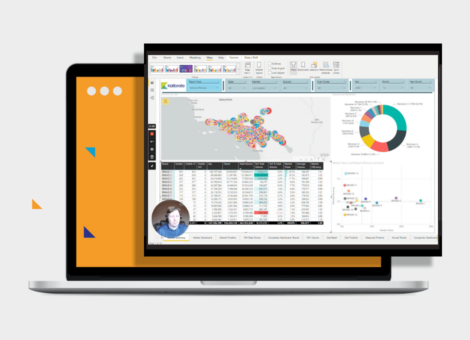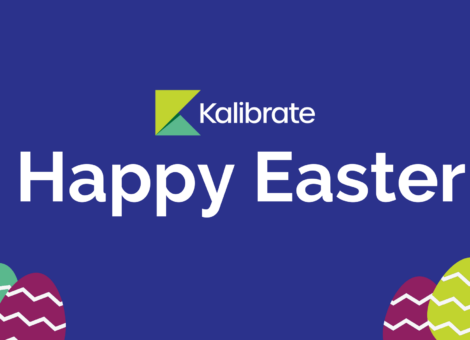COVID-19 in Canada: how Coronavirus is impacting demand in the Canadian market
Here at Kent, we’ve collected data on the Canadian petroleum market for nearly 50 years. We’re the only source of price and volume data in Canada, which gives us a unique perspective on the impact of COVID on our market. Like other countries, Coronavirus has taken a heavy toll across Canada.
The impact on the economy, and specifically, the demand for fuel, has been swift and significant. Unsurprisingly, Canadian petroleum prices experienced an unprecedented decline in the first quarter of 2020. The average wholesale price of gasoline dropped 55.9%, while diesel prices dropped 36.2% from the end of the previous quarter.
In terms of demand, the data we’ve collected shows that on average, there’s been a nationwide drop of roughly 50% compared to the same period last year. There are significant disparities between rural/suburban and urban areas. Gasoline demand is down 30-50% in rural and suburban areas, while urban demand is down between 50% and 70%. Similar to the trend with prices, demand for diesel is only down two-thirds of what gas is, at least partly due to the fact it’s widely used in commercial transport and essential service vehicles.
Majoring on convenience
Volume decline is obviously a huge hit to revenue. When the demand for fuel drops so significantly, it brings into stark relief the importance of a robust convenience offer. It’s an important means of diversification while the industry tries to weather this storm. Outlets with large convenience offerings and quick service restaurants (QSRs) — while still struggling, have seen far less decline in their demand. The same goes for outlets anchored by chain grocery stores — again, they’re seeing their demand decline between 10%-20% less than those without a co-located grocery offering.
It’s critical that fuel and convenience retailers really take the time to consider their offer holistically. Investments in the backcourt are often viewed as effective magnets for volume, but we’re seeing that not all of these magnets are pulling with the same force in this new market environment. It’s time to seriously reassess where else you can add customer value and how that relates to your ability to generate volume.
How has your demographic changed? Who is coming to your outlet in this climate? If you’re an urban retailer, you may want to consider boosting and promoting household essentials, as people shop for groceries closer to home. For sites along highways, who will be seeing significantly less traffic, you need to consider what’s likely to attract what’s left.
But remember, you need to approach any change in strategy with due care. To take effective action, you need to understand your offering in the context of the competition. You can’t eliminate the impact of COVID on your operations. You don’t need to. What you need to do is mitigate its impact on your business, relative to the competition.
It’s likely that some form of mobility restrictions will be around for the long-term, and even when restrictions are lifted, the “new normal” may look entirely different to pre-lockdown. You need to be mindful of how the landscape may change in the short, long and longer-term for your business. To do this effectively, you need to truly understand your local market, the competitive environment, and how your customers’ changing behavior could impact the whole of your business, not just fuel.
Paying a premium, dealing in diesel
Unexpectedly, as a percentage of total volume, premium fuel sales are up. It’s not clear why this is: are more people buying this because premium prices have dropped? Or possibly because they are spending less on fuel than usual?
While it’s difficult to pinpoint why premium fuel sales are up — we’ll need more longitudinal data and customer insights to tell us that — we can still glean value from the data itself.
Premium fuel is a much less price-elastic market. Margins are higher and more stable, so it might very well be the case that you can recover some lost revenue here. It’s important in this case to understand how your customers and your competitors may respond to price changes, because the impact of pricing decisions on volume is not uniform across all brands or outlets.
As with premium gasoline, diesel has been a higher margin product in the current environment, and has taken less of a hit to demand too. This may present another opportunity to recover revenue lost in other areas. But as we already mentioned, this should be considered with your competition in mind.
Everything in the context of competition
Essentially, you need to be able to see how COVID is impacting not only your own business, but also your competitors’, and if there are differences in those impacts, then try to understand why. If a competitor was impacted less dramatically than you — you need to understand what’s causing that difference and leverage that knowledge in your strategic response.
These are the kinds of insights that Kent data and KMI analytics are able to deliver. Our data is employed across the Canadian retail fuel landscape, allowing our clients to see what differentiates their business. Understanding what’s driving those differences is key to adapting — incredibly important in this unprecedented market — and driving revenue accordingly.
Expansive insights, personal experiences
When I look at how Canada has responded to COVID, I can see how varied it’s been across different provinces. In Ontario, where I’m based, the lockdown has really impacted my family’s mobility. We barely leave the house, and haven’t really left the neighborhood. We have groceries delivered and haven’t had to fill up our cars in nearly two months.
While my experience isn’t everyone’s, it is clear that trends in mobility are being dramatically altered and it’s impacting the fuel business. Where you might have filled up once a week at the same gas station en route to work, you may now use whatever’s closest and most convenient for your house. People are shopping more locally: COVID is, in effect, dispersing the population. If you apply those patterns nationally, the impact on overall demand, and the migration of that demand within markets, is huge.
Making predictions through unprecedented times
I expect we’ve already reached the bottom of COVID-related demand destruction, but rebuilding demand will happen slowly. Looking to other countries can give us clues as to what to expect. In major urban areas in the US, for example, they’ve seen small but material demand increases over the last couple of weeks.
Canada has the “benefit” of being slightly behind similar economies in the peak of the virus. This means we can look to them to establish what the route out of lockdown may look like. Any relaxations in policy that cause the spread of the virus to accelerate, will quickly be rescinded, and so, it looks like we may see subdued demand for some time, and its recovery may not happen in a “straight line”.
While demand will start to edge back up soon, it certainly won’t fully recover for some time. I would expect it to take six to eight months before we return to anything like “normal” — whatever that might look like.
Our society is permanently changed by this pandemic. The way we live and work is also likely to be, and that means the fuel industry will be too. It remains to be seen where things will settle in the long-term, but we’re certainly seeing the biggest shake-up to our industry in a generation. Your market position is only as strong as your understanding of it, now more than ever.
To hear more about Kent’s unique proposition and the importance of understanding your competition, talk to a Kalibrate expert.
Read more articles about:
UncategorizedSubscribe and get the latest updates
You may unsubscribe from our mailing list at any time. To understand how and why we process your data, please see our Privacy & Cookies Policy
Related posts
Uncategorized
On-demand demo of Kalibrate Market Intelligence
For fuel retailers that want to gain market share, KMI provides granular detail on competitor performance allowing...

Location intelligence
Kalibrate Planning: hints and tips
Your monthly Kalibrate Planning hints and tips.


